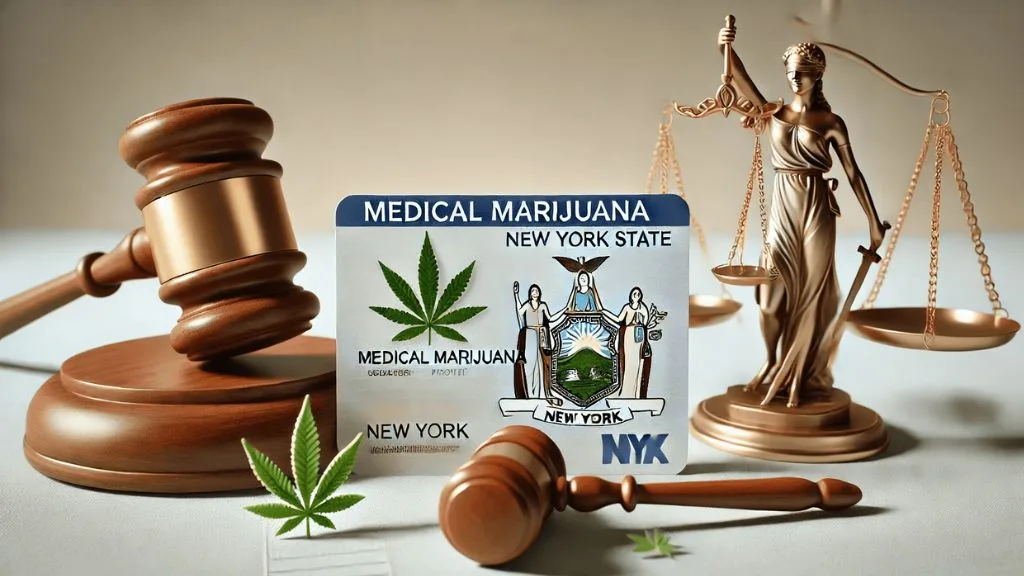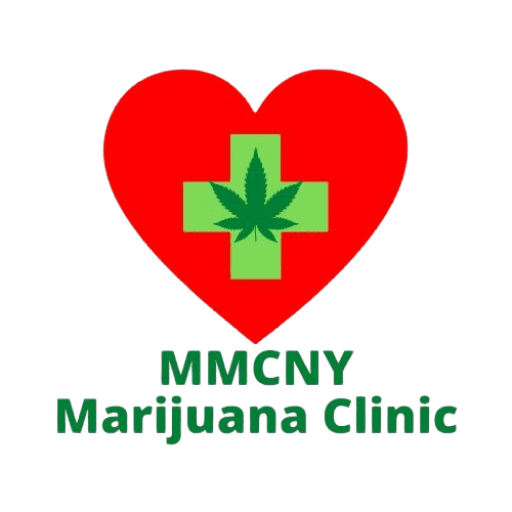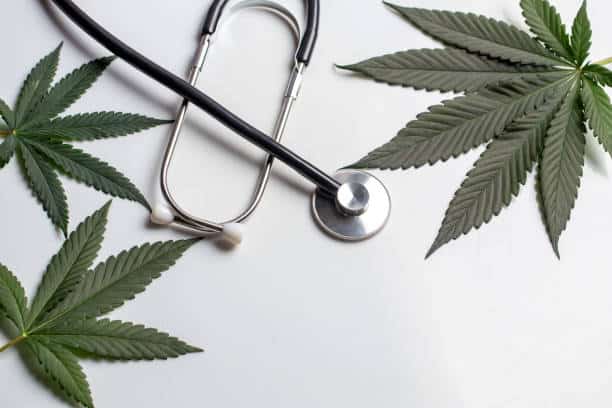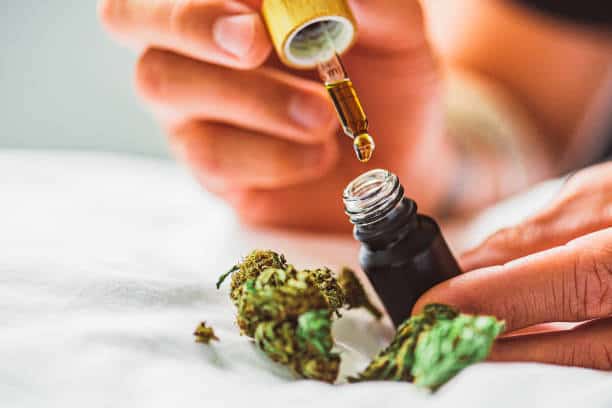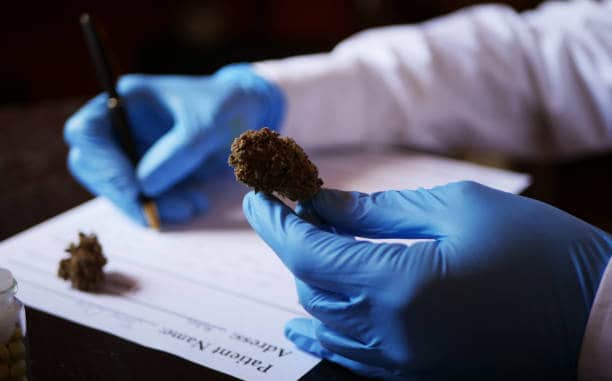Did you know that in New York, medical marijuana patients have special legal protections that help keep them safe from unfair treatment? If you or someone you know uses medical marijuana, it’s important to understand these protections.
New York’s laws are designed to ensure that patients who rely on medical marijuana for their health aren’t treated like criminals. For example, if you have a medical marijuana certification, you can’t be arrested just for having or using your medicine. The law also protects you at work and in your home.
Employers can’t fire you just because you use medical marijuana, and landlords can’t kick you out for being a patient. But these protections only apply if you follow the rules, like using marijuana in approved places and keeping your certification up to date.
If your rights are violated, there are ways to get help. Knowing what protections exist and how to use them can make a big difference. To learn more about how these laws work and what you need to stay protected, keep reading this blog!
Table of Contents
Toggle- What Legal Protections Are in Place for Medical Marijuana Patients in New York?
- Which Situations Are Medical Marijuana Patients Protected From in New York?
- How Can Medical Marijuana Patients Prove Their Legal Status in New York?
- Why Are Anti-Discrimination Protections Important for Medical Marijuana Patients?
- Where Is the Use of Medical Marijuana Permitted for Patients in New York?
- Can Patients Be Penalized for Using Medical Marijuana in Public Spaces in New York?
- Who Enforces the Legal Protections for Medical Marijuana Patients in New York?
- What Should Medical Marijuana Patients Do If Their Legal Protections Are Violated?
- What Documentation Is Required for Medical Marijuana Certification in New York?
- How Can Patients Ensure Their Documentation Is Complete and Accurate?
- Conclusion
What Legal Protections Are in Place for Medical Marijuana Patients in New York?
In New York, medical marijuana patients have several important legal protections that ensure they can use their medicine without fear of getting into legal trouble. These protections were put in place because the state recognizes that medical marijuana is a necessary treatment for many people with serious health conditions.
How Do State Laws Protect Patients From Criminal Prosecution?
One of the key protections is that patients who are certified to use medical marijuana cannot be criminally prosecuted just for possessing or using their medication. This means that as long as a patient follows the state’s rules—like having a valid medical marijuana certification and using their medicine in approved forms—they are legally protected.
For example, if a patient is stopped by law enforcement while carrying medical marijuana, showing their certification can prevent them from being arrested or charged with a crime. New York’s laws make it clear that medical marijuana patients should be treated differently from those using marijuana recreationally, which helps prevent unfair legal consequences for people using it as part of their healthcare.
What Specific Rights Do Certified Patients Have Under New York Law?
Certified medical marijuana patients in New York have specific rights that protect them in various situations. These rights include the ability to purchase medical marijuana from licensed dispensaries, possess an amount of marijuana that aligns with their prescription, and use their medicine as recommended by their healthcare provider.
Additionally, patients have the right to have a designated caregiver who can assist them in obtaining and administering their medical marijuana if they are unable to do so themselves. These rights are designed to ensure that patients can manage their health conditions effectively and without unnecessary obstacles.
Which Situations Are Medical Marijuana Patients Protected From in New York?
New York’s medical marijuana laws also protect patients in situations beyond just criminal prosecution. These protections extend to important areas of daily life, such as in the workplace and in housing.
How Does the Law Protect Patients in Workplace Settings?
In the workplace, New York law protects medical marijuana patients from being discriminated against by their employers. This means that an employer cannot fire, refuse to hire, or take any negative action against someone just because they are certified to use medical marijuana.
However, this protection does have some limits. For instance, if using medical marijuana affects a patient’s ability to perform their job safely—like operating heavy machinery or driving—employers may still have the right to enforce their usual safety rules.
Still, in most cases, as long as a patient’s use of medical marijuana doesn’t interfere with their work, they should be protected from workplace discrimination.
What Protections Exist for Patients in Housing Situations?
New York’s laws also provide protections for medical marijuana patients when it comes to housing. Landlords are generally not allowed to evict or refuse to rent to someone just because they are a certified medical marijuana patient. This ensures that patients can live in safe and stable housing while managing their health conditions.
However, patients must still follow any rules set by the landlord or housing authority, such as not smoking inside the apartment if it is a smoke-free building. By following these guidelines, patients can ensure they are both protected and respectful of the rules in their living situation.
These legal protections are crucial for helping medical marijuana patients in New York manage their health without facing unnecessary legal or social barriers.
How Can Medical Marijuana Patients Prove Their Legal Status in New York?
In New York, medical marijuana patients must be able to prove their legal status to ensure they are protected under state law. This is important in situations where law enforcement, employers, or others need to verify that a person is authorized to use medical marijuana for their health condition.
What Documentation Is Required to Show Law Enforcement or Employers?
To prove their legal status, medical marijuana patients in New York need to carry two key pieces of documentation: their Medical Marijuana Certification. This Medical Marijuana Certification has the patient’s name, photo, and a unique identification number that confirms their registration in the state’s medical marijuana program. The doctor’s certification is a document provided by a registered healthcare provider, confirming that the patient has a qualifying medical condition and is approved to use medical marijuana.
When encountering law enforcement, showing the patient ID card is usually enough to prove that the possession and use of medical marijuana are legal. Employers may also request to see this documentation if the use of medical marijuana comes up in a workplace setting, such as during drug testing or if there are questions about medication that might affect job performance.
How Should Patients Carry and Store Their Medical Marijuana to Ensure Legal Compliance?
To comply with New York state laws, medical marijuana patients must carry and store their medical marijuana responsibly. When carrying medical marijuana outside the home, it’s important for patients to keep it in its original packaging, which is labeled with details like the patient’s name, the dispensary’s name, and the dosage. This helps show that the medical marijuana was legally purchased and is being used correctly.
At home, patients should store their medical marijuana in a safe and secure location, out of reach of children and anyone who is not authorized to use it. Keeping it in a locked drawer or a medicine cabinet is a good practice. By following these guidelines, patients can avoid legal issues and ensure that their medical marijuana is used safely and properly.
Why Are Anti-Discrimination Protections Important for Medical Marijuana Patients?
Anti-discrimination protections are crucial for medical marijuana patients because they help ensure that patients are treated fairly and can access the same opportunities as others, despite their medical needs. These protections prevent patients from being unfairly targeted or treated differently simply because they use medical marijuana to manage a health condition.
How Do These Protections Impact Employment Opportunities?
In New York, anti-discrimination laws protect medical marijuana patients from being unfairly denied employment or being fired solely because of their status as a medical marijuana patient. This means that employers cannot refuse to hire someone just because they have a Medical Marijuana Identification Card or use medical marijuana. However, there are exceptions.
If a patient’s use of medical marijuana affects their ability to perform essential job duties or poses a safety risk, an employer might have grounds to take action.
For example, jobs that involve operating heavy machinery or driving may require stricter guidelines. Nonetheless, these protections ensure that most patients can work without fear of losing their job due to their medical treatment.
What Rights Do Patients Have If They Face Discrimination in Housing or Public Services?
Medical marijuana patients in New York also have protections when it comes to housing and public services. Landlords are generally not allowed to refuse to rent to someone or evict them because they are a certified medical marijuana patient. Similarly, public services, like health care or educational institutions, cannot deny someone access or treat them unfairly because they use medical marijuana.
If a patient believes they have been discriminated against because of their medical marijuana use, they have the right to file a complaint with the appropriate state agency or seek legal action. This could involve contacting the New York State Division of Human Rights or another relevant authority.
These protections are designed to ensure that patients can live, work, and participate in society without being unfairly treated due to their medical needs.
Where Is the Use of Medical Marijuana Permitted for Patients in New York?
In New York, medical marijuana patients must follow strict rules about where they can use their medication. The state has specific laws that allow patients to use medical marijuana, but these laws also limit where it can be used to protect public safety and ensure responsible usage.
Which Public Places Allow or Prohibit the Use of Medical Marijuana?
Medical marijuana use is generally prohibited in public places in New York. This means that patients cannot legally use their medical marijuana in locations such as parks, streets, restaurants, or public transportation. The law is designed this way to prevent exposure to secondhand smoke or vapor and to avoid potential legal issues in shared public spaces.
Public places like schools, workplaces, and government buildings also do not allow the use of medical marijuana, even if the patient is legally certified. The only exception to this rule might be in specific healthcare facilities where a patient’s use of medical marijuana is part of their treatment plan and is administered under strict supervision. Patients must always check the rules of any public place before attempting to use medical marijuana there.
How Does the Law Protect Patients Using Medical Marijuana in Private Residences?
New York law allows certified patients to use medical marijuana in private residences, including their own homes or the homes of others, as long as they have permission from the homeowner. This means that patients can safely use their medical marijuana without fear of legal repercussions within their own living spaces. It’s important to note that even though it is legal in private residences, patients should still use their medication responsibly, keeping it out of reach of children and storing it securely.
Landlords in New York cannot evict or refuse to rent to someone solely because they are a medical marijuana patient. However, patients should respect any smoke-free policies that their building may have. If smoking is not allowed, patients may need to use other forms of medical marijuana, such as edibles or tinctures, that do not violate the lease agreement.
Can Patients Be Penalized for Using Medical Marijuana in Public Spaces in New York?
Yes, patients can face penalties if they use medical marijuana in public spaces where it is not permitted. Even though medical marijuana is legal for certified patients, the state has strict rules about where it can be used to ensure it does not interfere with others or cause public disturbances.
What Are the Legal Consequences of Using Medical Marijuana in Unauthorized Locations?
Using medical marijuana in unauthorized public spaces can result in several legal consequences. If a patient is caught using medical marijuana in a prohibited area, they could be fined or face legal action.
For example, using medical marijuana in a public park or on public transportation could result in a citation or a fine. The penalties can vary depending on the location and the circumstances, but they are generally meant to discourage public use and encourage patients to use their medication in appropriate settings.
In more serious cases, repeated violations or using medical marijuana in sensitive areas, such as near schools, could result in harsher penalties, including possible criminal charges. To avoid these consequences, it’s crucial for patients to be aware of and follow the rules about where they can legally use their medication.
How Can Patients Ensure They Are Using Medical Marijuana Legally in Different Environments?
To ensure they are using medical marijuana legally, patients should always be aware of their surroundings and the specific rules that apply to each environment. Here are some steps patients can take:
- Know the Laws: Patients should familiarize themselves with New York’s medical marijuana laws, especially those related to where they can use their medication. This includes understanding which public places prohibit use and where it is safe to medicate.
- Ask for Permission: If a patient is staying at someone else’s home or visiting a private property, it’s important to ask the owner or landlord for permission before using medical marijuana. This helps avoid any misunderstandings or potential legal issues.
- Use Discreetly: Even in legal areas, patients should use medical marijuana discreetly to avoid drawing unnecessary attention. This is particularly important in shared spaces like apartment buildings where others may be affected by secondhand smoke or vapor.
- Carry Documentation: Patients should always carry their Medical Marijuana Identification Card and any necessary documentation to prove their legal status. This can help in situations where they are questioned about their use of medical marijuana.
- Choose the Right Form: Depending on the environment, patients may need to use a form of medical marijuana that is less intrusive, such as edibles or oils, instead of smoking or vaping, especially in areas where smoking is restricted.
By following these guidelines, medical marijuana patients in New York can ensure they are using their medication legally and responsibly, minimizing the risk of penalties or legal issues.
Who Enforces the Legal Protections for Medical Marijuana Patients in New York?
In New York, several government agencies are responsible for enforcing the legal protections granted to medical marijuana patients. These agencies ensure that patients can use their medical marijuana without fear of discrimination or unfair treatment. Understanding who enforces these laws and how they do so is crucial for patients who want to protect their rights.
Which Government Agencies Oversee the Rights of Medical Marijuana Patients?
The primary agency overseeing the rights of medical marijuana patients in New York is the New York State Department of Health (NYSDOH). This department is responsible for regulating the state’s Medical Marijuana Program, including issuing certifications, monitoring dispensaries, and ensuring that patients receive their medicine safely and legally. The NYSDOH sets the rules that govern how medical marijuana can be used and works to protect patients from legal issues.
Another important agency is the New York State Division of Human Rights (NYSDHR). This division focuses on preventing discrimination against medical marijuana patients, particularly in employment, housing, and public services. If a patient believes they have been treated unfairly because of their medical marijuana use, they can turn to the NYSDHR for help.
For legal issues that involve criminal prosecution or police action, the New York State Police and local law enforcement agencies also play a role. They are tasked with ensuring that medical marijuana laws are followed and that patients who are using their medicine legally are not wrongly targeted.
How Can Patients Report Violations of Their Legal Protections?
If a medical marijuana patient believes their rights have been violated, they have several options for reporting these violations. First, they can file a complaint with the New York State Division of Human Rights. This can be done online, by mail, or in person at one of the division’s offices. The division will investigate the complaint and take action if it finds that the patient’s rights were violated.
Patients can also contact the New York State Department of Health if the violation involves issues related to their medical marijuana certification or the conduct of a dispensary. For example, if a dispensary refuses to serve a patient without a valid reason, the patient can report this to the NYSDOH, which will investigate the matter.
If the violation involves criminal or legal issues, such as being wrongfully arrested or charged, patients should contact an attorney who specializes in medical marijuana law. They can also report the incident to local law enforcement or the New York State Police to ensure that the issue is addressed properly.
What Should Medical Marijuana Patients Do If Their Legal Protections Are Violated?
When a medical marijuana patient’s legal protections are violated, it’s essential to take immediate action to defend their rights. Knowing the proper steps to take can help resolve the issue effectively and ensure that the patient’s rights are restored.
How Can Patients Seek Legal Help or File a Complaint?
If a patient believes their legal protections have been violated, the first step is to gather all relevant documentation. This includes their Medical Marijuana Identification Card, any communication related to the violation (such as emails or letters), and records of their medical marijuana use, such as receipts from dispensaries.
Next, the patient should contact a lawyer who specializes in medical marijuana law. An attorney can provide legal advice, help the patient understand their rights, and represent them if the case goes to court. Many legal aid organizations in New York also offer free or low-cost legal services to patients who cannot afford a private attorney.
If the issue involves discrimination in the workplace, housing, or public services, the patient should file a complaint with the New York State Division of Human Rights. This can be done through the division’s website, by mail, or in person. The division will investigate the complaint and may take action against the employer, landlord, or service provider if they are found to have violated the law.
What Steps Should Be Taken If a Patient’s Rights Are Infringed Upon in the Workplace, Housing, or Public Areas?
If a medical marijuana patient’s rights are infringed upon in the workplace, they should first try to resolve the issue directly with their employer. This might involve providing documentation of their legal status as a medical marijuana patient and explaining how their medication does not affect their ability to do their job. If this doesn’t resolve the issue, the patient should file a complaint with the New York State Division of Human Rights.
In housing situations, if a landlord tries to evict a patient or refuses to rent to them because of their medical marijuana use, the patient should document the discrimination and file a complaint with the NYSDHR. It’s also advisable to seek legal counsel to protect their rights and prevent eviction.
In public areas, if a patient is discriminated against or harassed because of their medical marijuana use, they should report the incident to local law enforcement or the New York State Police. Additionally, they may file a complaint with the NYSDHR if the issue involves discrimination by a business or public service provider.
Taking these steps ensures that medical marijuana patients in New York are able to defend their rights and continue to use their medication safely and legally.
What Documentation Is Required for Medical Marijuana Certification in New York?
To get certified for medical marijuana in New York, patients need to provide several important documents. These documents help the state verify who you are, where you live, and that you have a medical condition that qualifies for medical marijuana treatment. Being prepared with the right paperwork is the first step in making sure your application is approved quickly and without issues.
Which Forms of Identification and Proof of Residency Are Necessary?
When applying for medical marijuana certification in New York, you’ll need to provide a valid form of identification. This is typically a state-issued ID like a driver’s license or a non-driver ID card. If you don’t have a state-issued ID, other forms of identification, like a passport or military ID, may also be accepted. The goal is to prove that you are who you say you are.
In addition to identification, you must show proof that you live in New York. This is usually done by providing a recent utility bill, a lease agreement, or any official mail that has your name and New York address on it. The state wants to ensure that only New York residents are using the medical marijuana program, so this step is crucial.
What Medical Records Need to Be Provided During the Application Process?
Your medical records are another key part of the application process. These records should clearly document the medical condition that qualifies you for medical marijuana. This could include a diagnosis from your doctor, records of treatments you’ve tried, and any relevant test results. The state needs to see that you have a condition that is on their list of qualifying illnesses, like chronic pain, epilepsy, or cancer.
Along with your medical records, your healthcare provider will need to write a certification that states medical marijuana is an appropriate treatment for your condition. This certification is essential because it’s the document that officially allows you to apply for the medical marijuana program.
How Can Patients Ensure Their Documentation Is Complete and Accurate?
Ensuring that your documentation is complete and accurate is critical for getting approved without delays. Here’s how you can make sure everything is in order.
What Are the Common Mistakes to Avoid When Submitting Documentation?
One common mistake patients make is not providing all the required documents. Forgetting to include a piece of identification, proof of residency, or medical records can slow down the process or even result in a denial. Another mistake is submitting outdated documents. For example, if your proof of residency is an old utility bill, it might not be accepted. Always check the dates and make sure everything is up-to-date.
Patients sometimes overlook small errors, like misspelled names or incorrect addresses. These small mistakes can lead to bigger problems, as they might cause confusion during the review process. Double-checking all your documents for accuracy can help avoid these issues.
How Can Patients Double-Check That Their Certification Paperwork Meets All State Requirements?
To make sure your paperwork meets all the state’s requirements, start by reviewing the checklist provided by the New York State Department of Health’s Medical Marijuana Program. This checklist outlines everything you need to submit, so it’s a good idea to use it as you gather your documents.
Before submitting your application, go over each document to ensure that all the information is correct. If possible, ask your healthcare provider to review the medical certification with you to make sure it’s complete and accurate. Finally, consider making copies of all your documents before submitting them, so you have a record of what you sent.
Conclusion
Navigating the legal landscape as a medical marijuana patient in New York can seem complex, but it’s crucial to understand the protections that the law offers. These protections are designed to ensure that patients who rely on medical marijuana for their health are treated fairly and can access their medication without fear of legal repercussions. New York law provides robust safeguards against criminal prosecution, discrimination in the workplace, and unfair treatment in housing and public services.
For example, if you’re a certified medical marijuana patient, you can use your medication in the privacy of your own home without worrying about eviction or job loss, as long as you follow the rules set by the state. Public places, however, have stricter regulations, and it’s important to know where you can and cannot use medical marijuana to avoid penalties.
If you ever feel that your rights as a medical marijuana patient are being violated, there are clear steps you can take. Whether it’s filing a complaint with the New York State Division of Human Rights or seeking legal advice, understanding how to protect your rights is essential.
By staying informed about your legal protections and knowing where to seek help if needed, you can confidently manage your health with medical marijuana in New York.
Resources
https://www.health.ny.gov/regulations/medical_marijuana/
https://www.mpp.org/states/new-york/
https://norml.org/laws/medical-marijuana/new-york/
https://www.drugpolicy.org/issues/medical-marijuana
https://www.nysenate.gov/legislation/laws/PBH/3369
https://www.cannabis.ny.gov/
https://www.ny.gov/services/medical-marijuana-program

